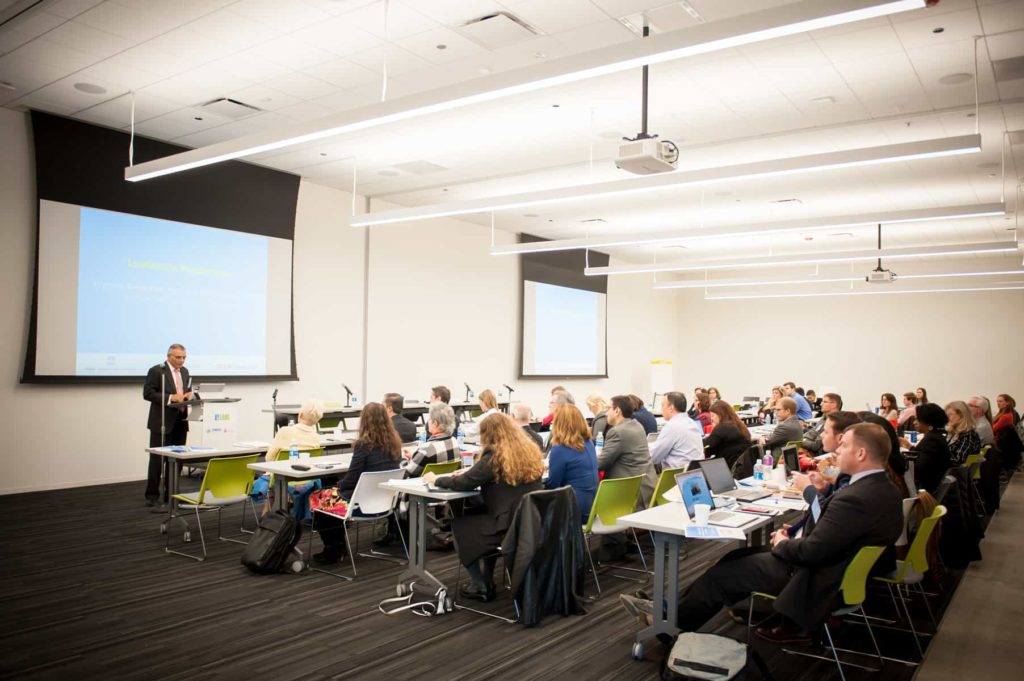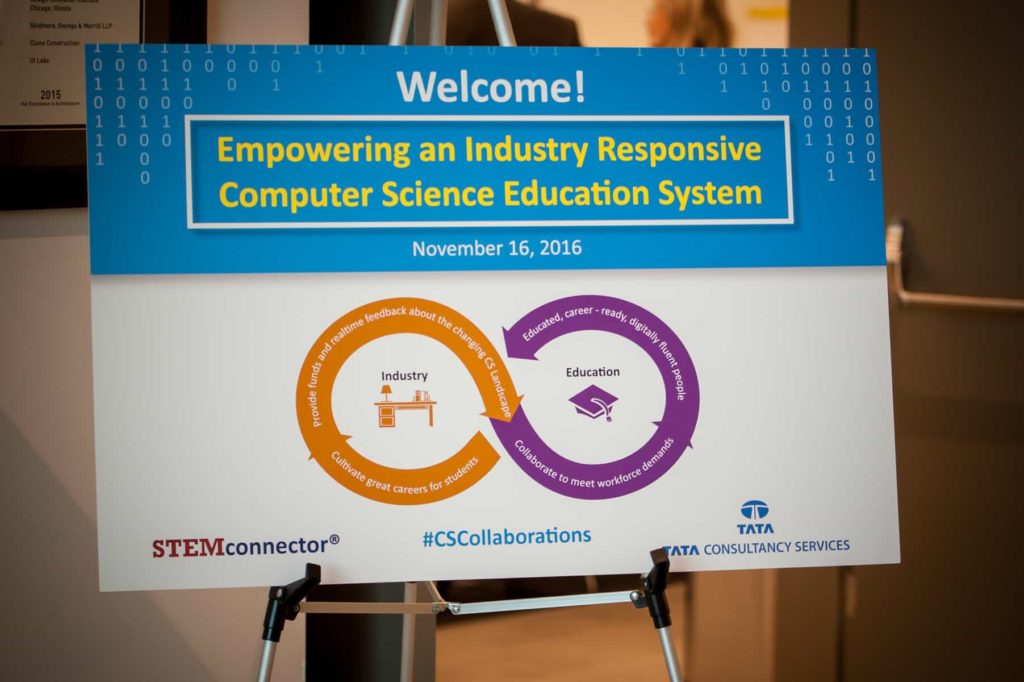On November 16, 2016, in Chicago, IL, STEMconnector and Tata Consultancy Services hosted the fourth in a series of annual computer-science-education-themed roundtables, entitled “Empowering an Industry Responsive Computer Science Education System”, hosted at UI Labs. Participants were asked to focus on how industry and education can better collaborate to prepare students for the future workforce. A summary and breakdown of key thoughts, takeaways and action items will be collected in a white paper, much like past CS Roundtables.

Presenters and panelists included:
- Drew Glassford, Senior Director of Strategic Initiatives for the Boy Scouts of America National Foundation
- Murtaza Sitabkhan, CIO, US Fuels Value Chains, BP
- Sharnell Jackson, Chief eLearning Officer, Chicago Public Schools
- Danielle DuMerer, CTO, City of Chicago
- Steve Betts, Chair, Lumity & Senior Vice President and CIO, Heath Care Service Corporation
- Kara Kennedy, Executive Director, Lumity
- Kelley Mavros, Partner, Strategy&, a PwC Team
- Surya Kant, President, North America, UK and Europe, TCS
- Erin Silva, STEM Strategies Group Coordinator, University of California, Davis
- Deborah Boisvert, Executive Director, BATEC, University of Massachusetts Boston
- Ruthe Farmer, Senior Policy Advisor, White House OSTP
- Brenda Wilkerson, Program Manager, CSforAll, Chicago Public Schools

Through a rich and lively discussion that included everyone in the room, participants shared ideas and actions centered around increasing and improving collaboration between education and industry to improve CS education outcomes. Some takeaways, to be expanded upon in the white paper, included:
- Industry must get involved with the equipping of teachers and classrooms
- Education institutions must focus on digital fluency, not just coded languages
- CS skills and education can come from alternative sources, deepening the pool of talent that industry can choose from
- A culturally and demographically diverse workplace is necessary to keep talent
- Public-private partnerships are necessary to improve outcomes

In addition, three questions were considered in more depth, included in breakout groups:
- How does the “all” in “Computer Science For All” fit into industry responsive computer science education systems?
- What do ideal public-private partnerships for computer science education at the PK-16 level look like?
- What innovations in industry still need to be addressed in robust PK-16 computer science educational programing?
A special thanks to our planning committee, Drew Glassford, Boy Scouts of America; Brenda Wilkerson, Chicago Public Schools; Cullen White, Teach for America; Erin Silva, University of California Davis; and Deborah Boisvert, University of Massachusetts-Boston.

